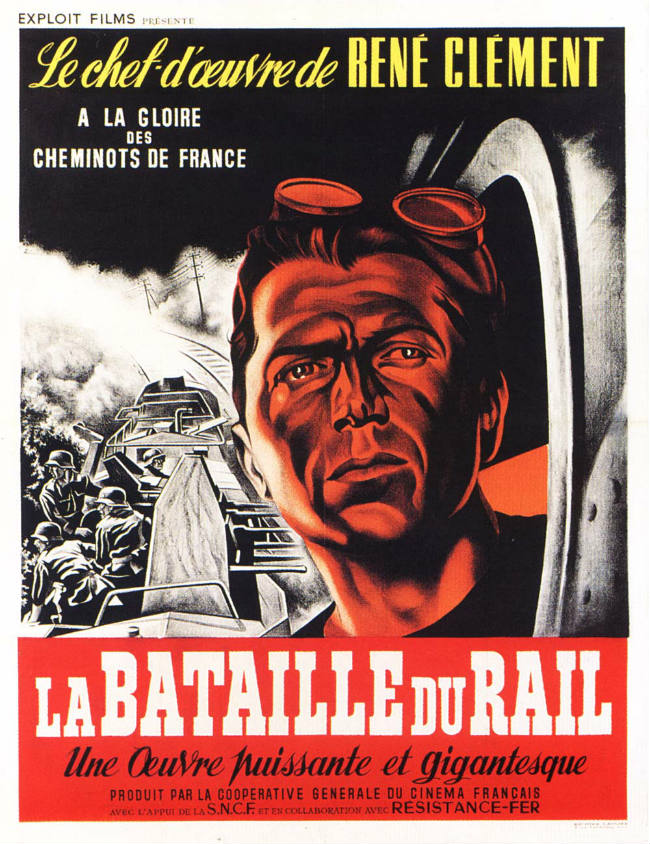La Bataille du Rail: Paris Under German Occupation Revisited at Cannes

France Today correspondent Anne McCarthy is on location in Cannes to cover the famous film festival. For more of her dispatches and reviews, click here.
Along with feature film debuts with high-profile red carpet glamour, the Cannes Film Festival is a full-on celebration of film, new and old.
This past week at the fest, the classic black and white 1946 war film from director René Clément, La Bataille du Rail, played to enthusiastic audiences. The film, which first debuted at the 1946 Cannes Film Festival and won the Prix international du jury (with Clément also winning the Best Director Award), was featured as part of the “Classic Films Revisited at Cannes” series. The newly restored film looked crisper and cleaner than the original.
The classic feature was one of the many events during the 70th Cannes Film Festival which commemorated the illustrious history of the renowned festival. “We hope you can discover or, rediscover, our restored film,” said a festival worker who introduced the screening.
The film is set during World War II, at a time when France was under German occupation, as orchestrated by Hitler. The film was made, surprisingly, in 1946, only one year after the end of World War II. One imagines that this was an ambitious venture at the time, perhaps one that was a little too close to home, and a little too soon, for some. It was a brazen choice for Clément –doing a war film a year after that war ended, one which left profound, unthinkable damage in its wake.
The first scene in the film is a sign saying “Jews Not Allowed.”
Despite the horror and despair that the Nazis spread, there were rays of hope – resistors like Schindler, Cory Tenboom, and others. Here, we meet fictional resisters. The film stars Marcel Barnault and Jean Clarieux, who take small acts of resistance that require big amounts of courage.

“La Bataille du Rail” film
One of the most critical components of the Nazi’s strength in Paris was their interconnectivity, as made possible by various methods of communication and transport. Transport like say, trains, for instance.
Our story’s heroes realize this, and decide to thwart the movement of German trains. In one scene, there are ten German trains which should’ve left in the evening. But before they could, bombs exploded in all ten, rendering them immobile, thanks to the efforts of the resistors.
Little by little, person by person, train track by train track, the men get about with halting trains leaving France and bound for Germany. On one train, they swap out the destination sign; a resistor replaces a sign that says “Frankfurt” with one that says “Rennes.” Thus, the conductor will reroute the train to Rennes.
On other trains, they take more physical actions. They leak out all the oil. They cut train breaks. They destroy the tracks, using metal bars to jigger them loose from the ground. Train wires are clipped with scissors, and the links of a train chain are sawed to weaken them. All bets of civility are off, as it becomes a battle of good and morality versus cowardice and evil.
“Death Penalty for Traitors,” reads a sign at the train port, in a foreshadowing way.
There’s something quite beautiful about black and white films like this one. The black and white coloring (or, non-coloring) seems to have a purifying, distilling effect on the story. Unfettered by the bright, empyrean glow of technicolor, expressions, plot lines, and – most of all – words seem to bear more weight.
New films and their household-name stars bring the crowds to Cannes, but the showing of films like La Bataille du Rail remind festival-goers why Cannes matters so much: it remembers its past just as much as its present.
Share to: Facebook Twitter LinkedIn Email
More in Cannes, Cannes Film Festival 2017
Leave a reply
Your email address will not be published. Required fields are marked *



